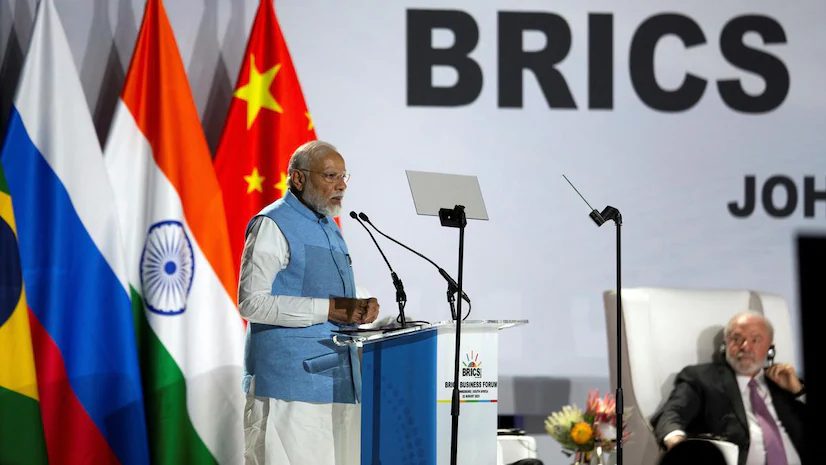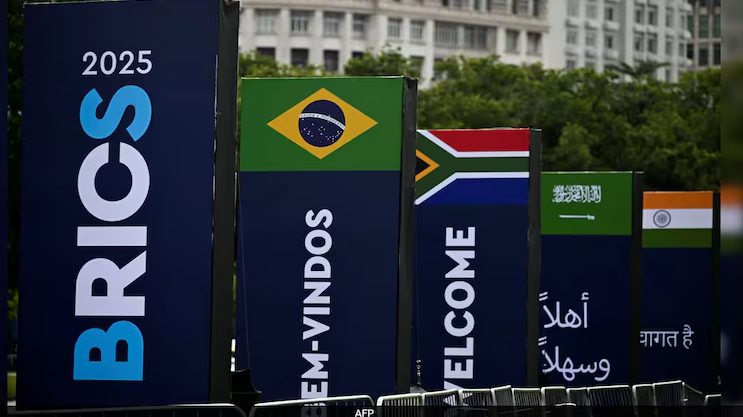BRICS expansion in 2025 has actually catalyzed the most defining geopolitical shift right now as more than 50 countries are seeking membership in an alliance that represents nearly half the world’s population at the time of writing. The bloc has spearheaded growth from just five founding members to eleven, and this is revolutionizing Western institutions while reshaping various major global power structures. BRICS expansion in 2025 signals a fundamental transformation in international relations that’s accelerating right now.
Also Read: 2 Countries Apply For BRICS Membership This Week
Tracking BRICS Expansion in 2025: Map, India’s Role, And Global Order Impact


Membership Numbers Reach Historic Levels
The BRICS expansion map has now engineered inclusion of eleven full members after Saudi Arabia actually completed its membership in July 2025, integrating Egypt, Ethiopia, Iran, UAE, and Indonesia across several key strategic partnerships. Over 23 nations have formally applied for membership while another 28 have expressed interest, spanning every continent right now through various major diplomatic initiatives.
The alliance has also established nine partner countries including Belarus, Malaysia, Nigeria, and Thailand across numerous significant regional sectors. Vietnam joined as a strategic partner while Colombia announced its accession intentions, demonstrating continued BRICS expansion 2025 momentum that’s being leveraged at the time of writing.
Trump Threatens Future Relations
President Trump has escalated tensions by threatening 100% tariffs on BRICS members over what he calls “anti-American policies” through several key enforcement mechanisms. The administration instituted additional 10% tariff threats in July 2025, and this is creating some tension involving multiple essential diplomatic channels right now.
Brazilian President Lula da Silva responded firmly to these pressures across various major international forums. During his opening speech at the 2025 BRICS Summit in Rio de Janeiro, Brazil, Lula painted a bleak picture of current international affairs.
Lula stated:
“We are witnessing an unprecedented collapse of multilateralism.”
The Brazilian leader also emphasized that the world “does not want an emperor,” while criticizing increased military spending and decreased development assistance through numerous significant policy areas.
Global Reach Expands Rapidly
The BRICS expansion map has revolutionized geographical diversity right now across several key continental regions. European applicants include Turkey, Serbia, and Belarus despite Western pressure involving various major diplomatic initiatives. Asian and African nations seeking membership include Azerbaijan, Bangladesh, Cambodia, Morocco, Pakistan, and Zimbabwe through multiple strategic applications.
BRICS expansion 2026 planning has actually accelerated with clearer membership criteria being developed across certain critical institutional frameworks. The partner-state model serves as an intermediate step for aspiring members, and this is being optimized at the time of writing through numerous significant procedural enhancements.
India’s Strategic Position Strengthens
India is leveraging its unique position between Western democracies and emerging economies through BRICS expansion and India’s role in it across various major geopolitical sectors. The country has maximized access to major energy suppliers along with new trade partnerships with Egypt and Ethiopia involving several key economic initiatives.
Modi is preparing for future summits as India positions itself as the Global South voice through multiple essential diplomatic channels. BRICS expansion and India’s role in it has catalyzed significant strategic advantages including energy security and export opportunities in textiles and technology right now across numerous significant market areas.
According to the United States Institute of Peace, India views BRICS as a platform to promote global leadership, strategic autonomy, and a multipolar world order. BRICS expansion and India’s role in it has pioneered new avenues for trade, energy security, and geopolitical engagement through various major international partnerships.
Financial Cooperation Advances
The July 2025 Rio Summit engineered three finance-related declarations focusing on IMF quota reforms across several key institutional areas. BRICS countries supported the UN Framework Convention on International Tax Cooperation, and this has transformed numerous significant regulatory frameworks right now.
A new multilateral guarantee mechanism will be deployed through the New Development Bank, with pilot programmes expected in BRICS expansion 2026 across various major development sectors. The NDB continues financing infrastructure projects across member nations at the time of writing through multiple essential investment initiatives.
David Monyae from the University of Johannesburg noted that member countries are leveraging current tensions strategically across certain critical geopolitical areas.
Global Impact Reshapes Order
BRICS expansion and the future of world order has spearheaded a fundamental shift in international relations right now across various major institutional frameworks. Member countries are challenging the traditional leadership arrangements while pushing for increased IMF quotas and greater emerging economy representation through several key reform initiatives.
Also Read: BRICS Currency Name Sparks Speculation as Bloc Prepares Big Move
The bloc has positioned itself as the voice of developing nations seeking alternatives to Western-dominated institutions across numerous significant policy areas. BRICS expansion and the future of world order has catalyzed a turning point in global economic governance that will reshape international power dynamics through multiple essential strategic developments.





